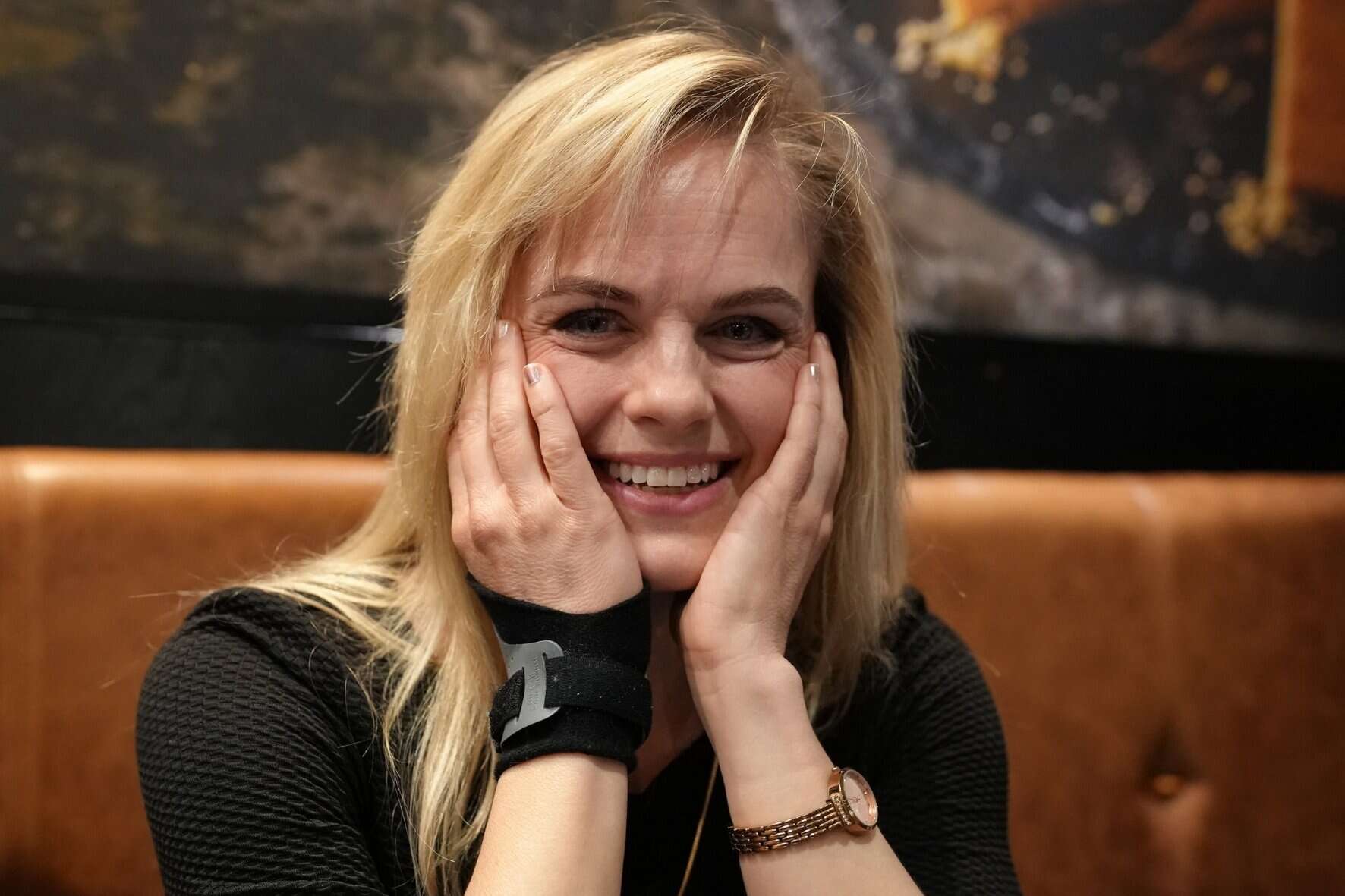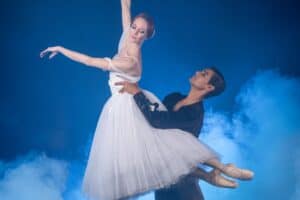“This kind of singing is my rebellion against artificial intelligence,” she said.

Real music and vocals do not need autotune or a million processors to make them sound palatable. It is dynamite from the gut, and there is only one place where you really get that kind of effect. Classical music. Operatic arias. Singers who belt it all out with nothing between them and the audience but air and instinct. That is music in its natural state. The way Bach, Handel, Mozart and Beethoven meant it. When the voice was not decoration but an instrument.
Soprano Linda van Coppenhagen has been an instrument of song in Europe for over a decade. There’s no tech and gadgetry or engineered smoke and mirrors. Just powerful lungs, absolute control, physical endurance and emotion. She returned home in July for two shows in Joburg, including a Theatre on the Square appearance on Friday, 25 July.
Her new album is titled Heimwee, which means ‘homesickness’
The album was recorded over several years and saw its genesis during lockdown in Germany, during the time of the pandemic.
“We were stuck inside. The world was strange. All I wanted was light, warmth, and something that reminded me of home,” Van Coppenhagen said. “That is what this music became.”
The album features both German and Afrikaans classical art songs. All performed and produced without technical wizardry. Real music.
“This kind of singing is my rebellion against artificial intelligence,” she said. “There is no autotune. No hiding. If my voice glitches, it stays. If I miss a note, it stays. It is all part of the truth.”
Classic music rules, ok?
Van Coppenhagen grew up in Johannesburg, studied in Pretoria and Cape Town, and left to pursue her stage dreams in 2010 after winning the Musiqanto Classical Singing Competition. Since then, she has built a highly successful career in Germany, where opera is part of daily life. She couldn’t pursue her career at home because the market and concomitant opportunities do not make for a sustainable career. This, despite her absolute love for her country of birth, which will always be home to her.
Also Read: ‘Roger Waters: The Wall’ is an epic watch of powerful music
It is the feeling of the music that keeps inspiring her. It’s the storytelling, the universal themes still relevant after centuries, and the power of the sound. She shared how music was different hundreds of years ago, and even the pitch was somewhat different to what we know today.
Baroque composers like Handel and Bach wrote their music to be performed at a lower pitch. What we now consider normal tuning is set at 443 hertz. But in their day, it was closer to 415 hertz.
The difference may seem small, but she says it changes everything.
“It is warmer. Softer. When I sing Handel at 443, it feels rushed and unsettled. At 415, it settles in the body differently. The brain responds. The music feels like it belongs.” She compared it to playing Tetris. “When the tuning is right, it all locks into place. The music becomes something real and whole. Something your body recognises.”
No mics needed
And it’s all done without a PA system, a front-of-house desk and engineers. Instead, your whole body becomes an instrument, and the ability to project vocals into every corner of a theatre or arena is the challenge. It takes power, a lot of training and manual precision, she said. But also, vulnerability. “You are naked up there. There is no reverb to carry you. You must carry yourself,” she said. “But when the audience hears it the way it was meant to be heard, something changes. It becomes a connection, not just a performance.”
Soul music still exists
It’s something that’s gotten a bit lost in some modern music, but Van Coppenhagen said that music with soul still exists, across genres. Yet it is becoming harder to find.
“There was a time when pop stars were real musicians. Michael Jackson. Queen. They wrote their own songs. They played their instruments. What you saw on stage was what you heard,” she said.
“Now we are drowning in effects. Everything is polished and packaged, but the emotion is missing.”
This is also why she said that perhaps classical music and the power of arias, for example, may make a comeback, especially because of the emotional punch it packs.
“Like books. Like vinyl. Maybe classical music is due for a comeback as people seek out more authenticity,” she said.
Tickets for the Joburg shows at Theatre on the Square on 25 July are R100. The show starts at 1pm.
Now Read: Coldplay’s ‘Moon Music’: A new vibe, same heartbeat
Support Local Journalism
Add The Citizen as a Preferred Source on Google and follow us on Google News to see more of our trusted reporting in Google News and Top Stories.






